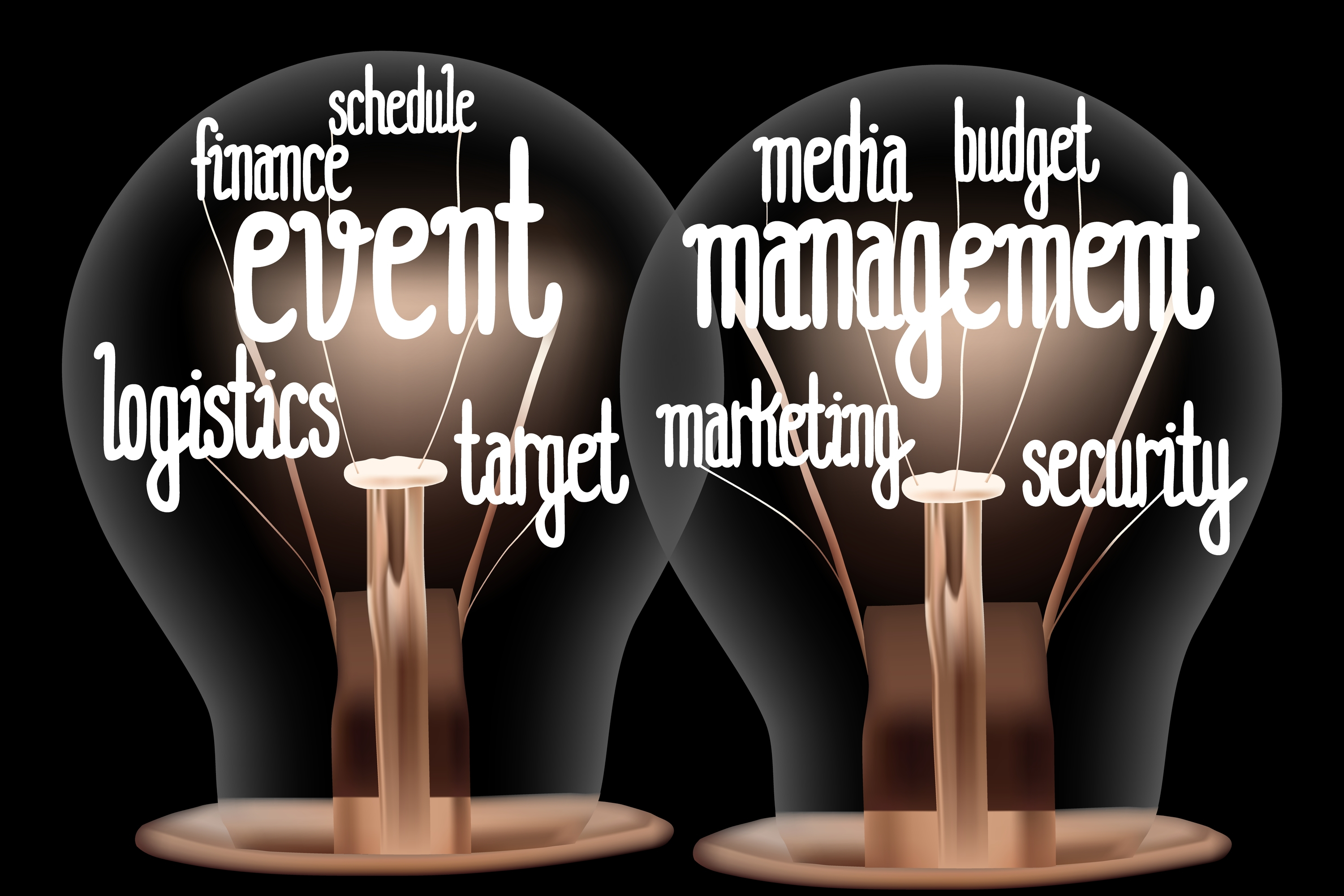Managing events is no small feat. Whether you’re an in-house event manager for a fortune 500 company, the head of events for a higher education institution, trying to promote your venue or anywhere in between, events and venue management are rife with tasks and potential stumbling blocks.
In the past, a pen and paper were all you needed to successfully manage events. That, and a team of specialists and a phone. Today’s events have grown in complexity and size, with demands forcing shorter timelines, a need for streamlined booking processes and a larger emphasis on security — all with an increasingly tight budget.
The events industry is bigger than ever, and it’s only getting bigger. What worked in the past simply won’t cut it anymore. Successful venue and event management in today’s landscape requires a digital way forward. Event management software and venue management software are the solution.
What is event management software?
Event management software is a digital platform that helps organizations plan, book, execute, and analyze events in one centralized system. It replaces manual tools and disconnected systems with a more streamlined way to manage venues, resources, and event operations from beginning to end.
There was a time when virtually all venue and event management was done via the infamous big book. For the uninitiated, this book acted as your single source of truth. It held all appointments, notes on any changes, financial details, catering notes and more. Event management software is ultimately the big book and more.
Event management software varies in functionality depending on the provider. Some platforms focus on booking, others on the financial side, others on virtual events and so on. Regardless of the provider, key functions of EMS typically include any number of the following:
- Online booking: Handles event and space requests, scheduling, and confirmations in one system.
- CRM-related processes: Manages information for clients, partners, and internal stakeholders.
- Invoicing and payments: Supports billing, payment collection, and event-related financial tracking.
- Catering management: Coordinates menus, headcounts, and dietary requirements across events.
- Equipment inventory: Catalogs available equipment, including AV, furniture, and event supplies.
- Budget analysis: Tracks costs, monitors budgets, and summarizes overall event spend.
- Workflow automation: Streamlines approvals, tasks, and repeatable event processes.
- Email templates: Enables consistent event confirmations, reminders, and updates.
Regardless of the services offered by a particular event management platform, the end goal is often the same: help today’s venue and event professionals keep up with the increasing pace and benchmarks of event management success.
Why use event management software?
Event management software offers a number of clear perks. But still, if the book acted as a single source of truth, it’s easy to wonder why this approach isn’t applicable anymore. There are a number of reasons:
- Today's events processes are larger and more complex.
- Events can span multiple venues and carry a digital/virtual element.
- Safety is a larger focus than ever, requiring more security and compliance.
- Larger events necessitate more efficient booking and registration processes.
- Budgets are tighter, requiring more efficiency across the board.
- Staffing is in flux, especially in the wake of the coronavirus pandemic.
A big physical book doesn’t lend itself to efficiency, nor does it allow for quick or easy management of third-party security contractors. A big book doesn’t make it easy to collate historical data from previous events and fiscal years, either.
Simply put: event management software is more capable of keeping up with today’s pace and complexity than any manual process or methods.
“Some organizations still use the big book approach. Others, looking for a digital solution will turn to something like Excel. This is an improvement, but a lot of organizations quickly realize there’s no historical data or changelog with something like Excel. This presents its own problems, which drives a lot of people to a proper event management platform eventually.” — Michelle Whittle, Team Lead of Solutions & Engineering at Momentus
Benefits of using an event management software
As events continue to grow in size, frequency, and complexity, event management software helps organizations keep pace. Rather than relying on manual processes or disconnected tools, teams gain a more structured and scalable way to manage events from start to finish.
Improved visibility across events and venues
One of the most immediate benefits of event management software is visibility. Event details, bookings, financial information, and resource availability all live in a single system. This makes it easier for teams to understand what’s happening across venues and events at any given time without relying on emails, spreadsheets, or paper records. When information is centralized, teams can respond faster to changes and reduce miscommunication.
More efficient and consistent processes
Event management software helps standardize how events are planned and executed. Automated workflows, templates, and approval processes reduce repetitive manual work and ensure tasks are handled consistently. This is especially valuable for organizations managing recurring events, multiple venues, or large volumes of bookings, where small inefficiencies can quickly add up.
Better financial oversight and budget control
With built-in tools for invoicing, payments, and budget analysis, event management software provides clearer insight into event-related finances. Teams can more easily track costs, monitor budgets, and understand how individual events or venues are performing financially. This level of visibility is critical when budgets are tight and accountability is increasingly important.
Stronger coordination between teams and stakeholders
Events often involve multiple internal teams and external partners. Event management software helps keep everyone aligned by centralizing communication, documentation, and timelines. Whether it’s coordinating catering, equipment, or room setup, having a shared system reduces confusion and helps ensure nothing falls through the cracks.
Easier access to historical data and reporting
Unlike paper-based systems or basic spreadsheets, event management software maintains a record of past events. This historical data allows teams to analyze trends, compare performance year over year, and make more informed decisions moving forward. Over time, this insight helps organizations improve planning, justify investments, and refine their event strategies.
A foundation that can scale with demand
As event programs grow, manual systems become harder to manage. Event management software provides a foundation that can scale alongside increased demand, new venues, or more complex event requirements. Rather than constantly adjusting processes to fit the tools, teams gain a system designed to support long-term growth. Taken together, these benefits make event management software less about replacing a book or spreadsheet and more about building a system that supports the realities of modern event and venue management.
Are all event management software platforms the same?
No two event management platforms are equal, with many trading one feature for another or prioritizing one type of event over another. Where some event management software vendors focus on venue management for performing arts, others tailor their offerings to virtual events and so on.
These differences make it important to understand your own organization’s workflows, audience, pain points and more. As you think about what kind of vendor to look for, consider the following:
- Number of event spaces you manage.
- The complexity of your event booking process.
- The complexity of your event registration and ticketing processes.
- Whether the vendor offers a mobile app.
- If the vendor provides real-time insights and analytics.
- What kind of floor plans you manage.
The above are only a handful of the many considerations. For a more exhaustive look at the vendor selection process, read our comprehensive venue and event management selection guide.
Once you have a firm understanding of your event management needs, then you can begin your search for the right venue and event management software platform.
FAQ on event management software
What does event management software do?
Event management software helps organizations plan, book, execute, and analyze events in one centralized system. It brings together scheduling, resource coordination, financial tracking, and communication so teams can manage events more efficiently from start to finish.
What are the different types of event management software?
Event management software can vary by focus. Some platforms specialize in venue and space booking, others focus on registration and ticketing, financial management, or virtual and hybrid events. More comprehensive platforms combine several of these functions to support the full event lifecycle.
What are the four types of event management?
Event management is often broken into four core areas: planning and coordination, operations and logistics, financial management, and post-event reporting. Modern event management software is designed to support all four by centralizing data and standardizing workflows.
What are the top event management software platforms?
Top event management software platforms vary based on industry and use case. Some are built specifically for venues and higher education, while others focus on conferences, corporate events, or ticketed experiences. When evaluating platforms, it’s important to consider functionality, scalability, and how well the software supports your organization’s specific needs.
Momentus event management software
The events landscape continues to evolve, placing new demands on teams to manage more events, tighter timelines, and increasingly complex operations. To keep pace, organizations need a platform that brings everything together, not another tool that adds complexity.
Momentus event management software is designed to support the full event lifecycle in one connected platform. From online booking and space management to financial tracking, resource coordination, and reporting, Momentus helps event and venue teams work more efficiently while maintaining visibility across every detail. With centralized data, automated workflows, and tools built to scale, organizations can better manage today’s events while preparing for what comes next.
If you’re looking to streamline operations, gain better insight into event performance, and build a more sustainable approach to event and venue management, Momentus provides a practical path forward.
Explore how Momentus can support your event strategy and see the platform in action below.








